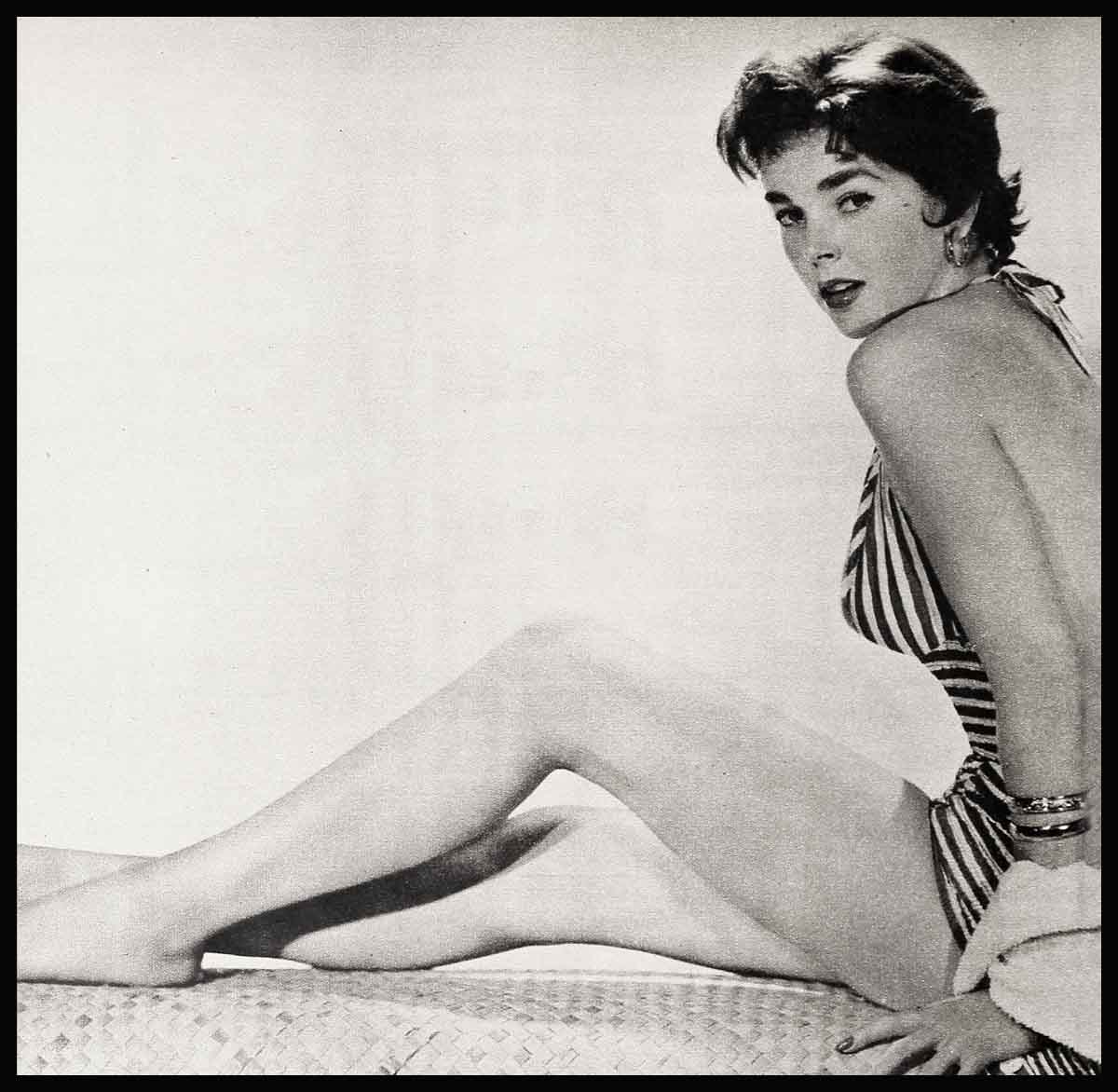
Dawn Addams: “I Think I’ll Marry, But—”
Dawn Addams is a provocative, exciting girl with a certain amount of feminine restraint—that brings her suitors young and old. On both sides of the world news columns report her romances one by one and today it is the conclusion that while Dawn tarries, she never marries.
At twenty-three, Dawn concentrates sharply on the business at hand—whether it be a new picture or a new man. But always before the strains of Lohengrin she quietly slips away—and you read of her in another country making a new picture or with a new conquest. Her attitude towards her acting is disciplined and intelligent. But as a femme fatale whose personal life reads like a heroine in some novel, something always happens to her romances before they reach the altar stage.
“Every girl should be married—once,” Dawn replied with a light little laugh. “It is just different, I guess, with me. Between the men in my life and me—it’s always the unspoken, the inference, never the direct thing. If it had been the question—I don’t know what would have happened.”
Then, with that innate candor that bewilders most people who meet her for the first time—not to mention what such behavior must do to a mere male—she said, “If you want me to be very serious, I will be.
“I can’t think what it would be like to get married and sit back and not have some aim of my own. If you marry at the stage where work has not yet become a part of you or where you are still trying and not quite stabilized in it—then you have no security within yourself. And until you have you can’t feel secure in your relationships with people either. You can have friends, but to put some poor guy into the middle of your formative career—to pull him around by the apron strings—is unthinkable. I like and respect men too much to do that to any one of them.
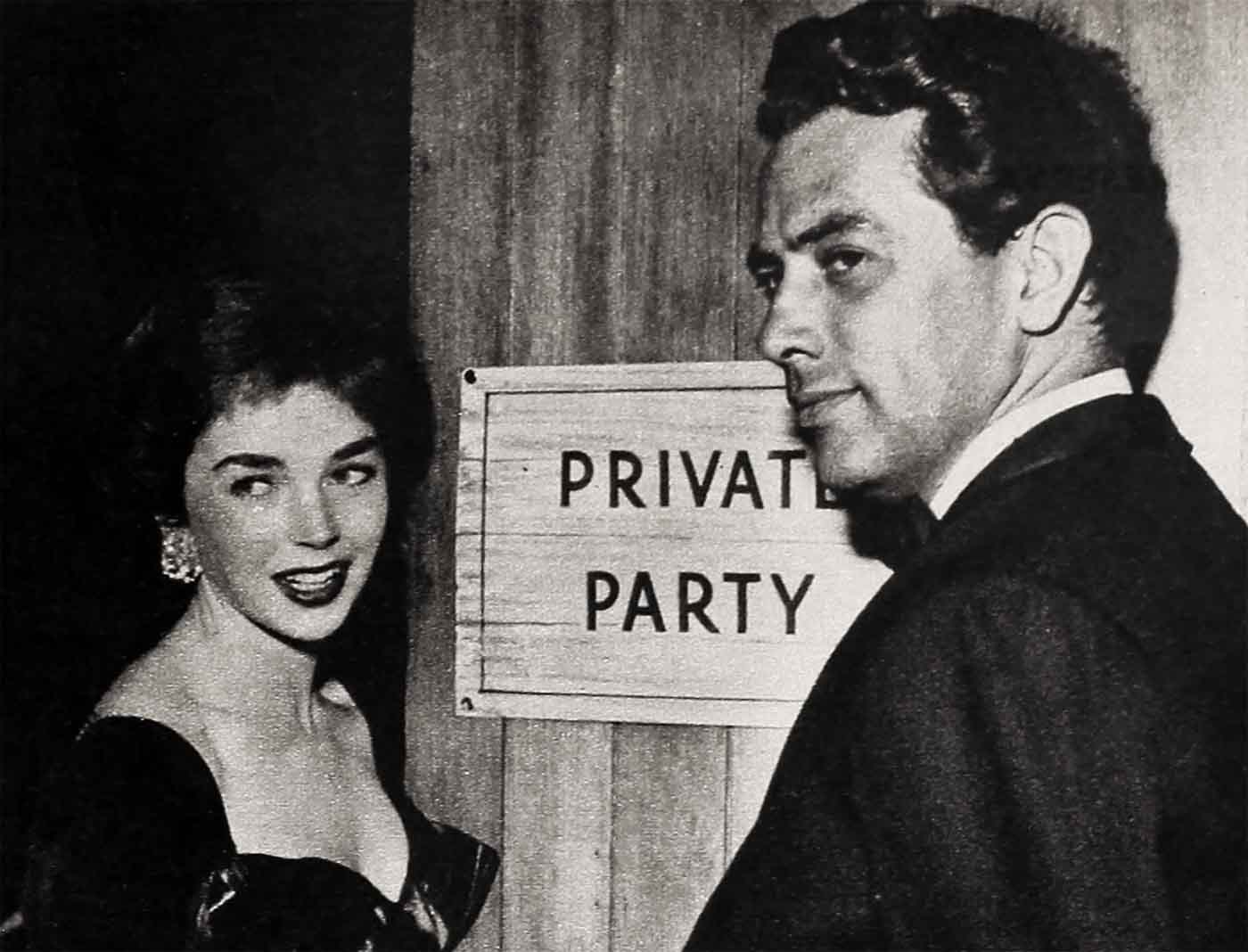
“We all have small tragedies connected with our work. How you handle them often depends upon the amount of experience you’ve had. When you’re just starting out on a career you are not sure of yourself and get discouraged easily. Such a state of mind doesn’t lend itself to a happy marriage.
“I have been in love. Like all women, I visualize in the man I adore, the possibility of a husband. But I have never, unless it is now, reached the point where I believed that I could combine work and marriage. And yet—now with Vittorio Massimo, a prince from one of the oldest families in Rome—well, perhaps this is the time.”
Of English-Irish-American descent, Dawn was raised by her dashing father, Captain Jimmy Addams (once married to Arlene Judge, a former companion of Barbara Hutton and a member of the international set) and her grandmother. Her mother died when she was a very little girl.
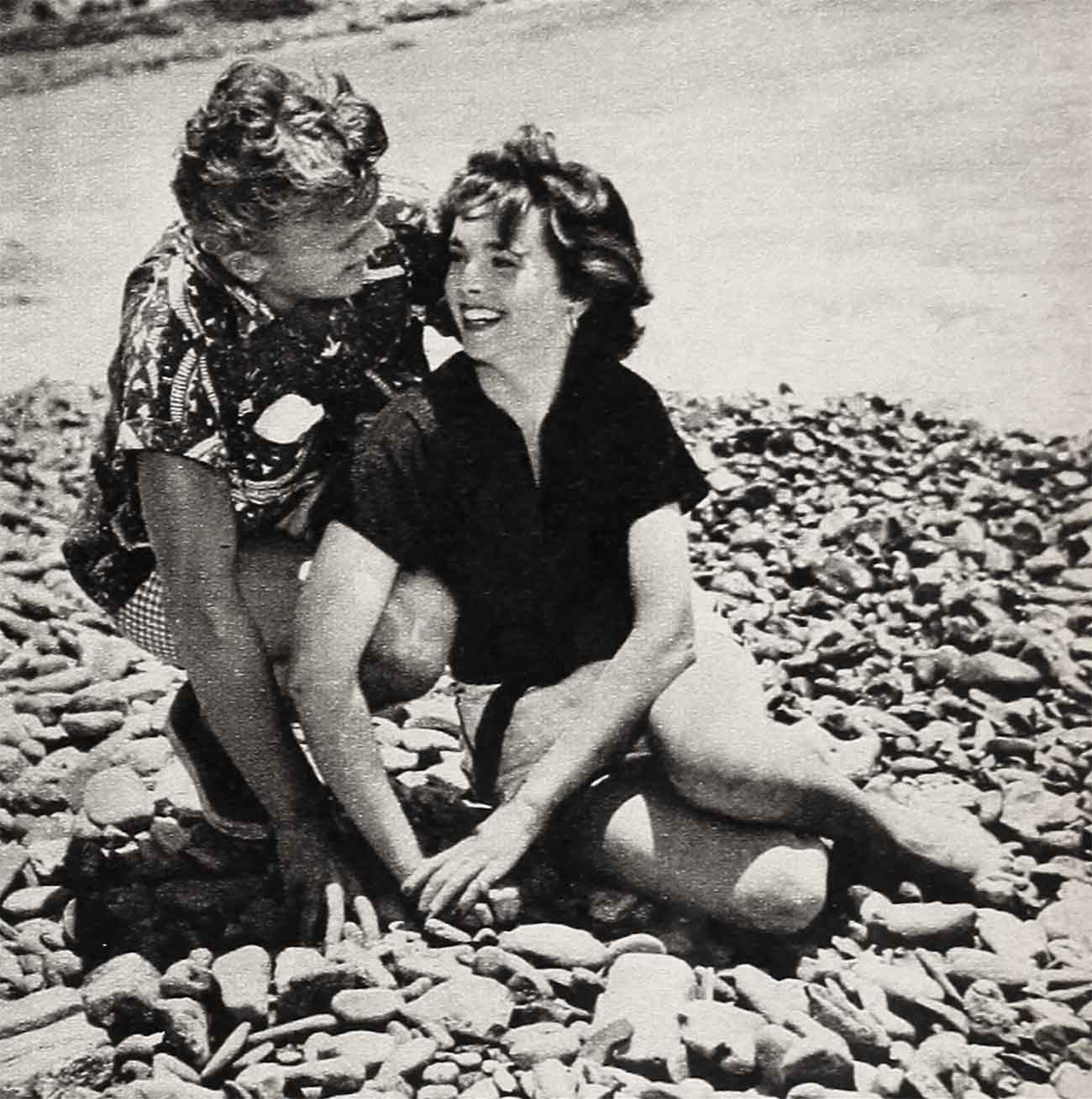
“I think the reason I first wanted to become an actress is due to my English training, which forbids you to show your emotions. In acting, I could be all kinds of people and give vent to all kinds of feelings. I began working at the Royal Academy of Drama in 1949. My first play, ‘French Without Tears,’ was for the Cambridge University players. I called myself Vicky Addams, because my real name was Dawn, and everyone thought I had made it up.
“I was playing in ‘Charley’s Aunt’ in London when the Charles Feldman Agency offered to send me to Hollywood to test for Roxanne in ‘Cyrano de Bergerac.’ But I couldn’t accept it. A second offer came when the play finished its run. The cable guaranteed my expenses and stay in Hollywood for three months. My father was in America, and I had lots of American ties. Being eighteen and free, I was quite able to take the gamble of coming to Hollywood. Had I responsibilities I could not have accepted so readily.
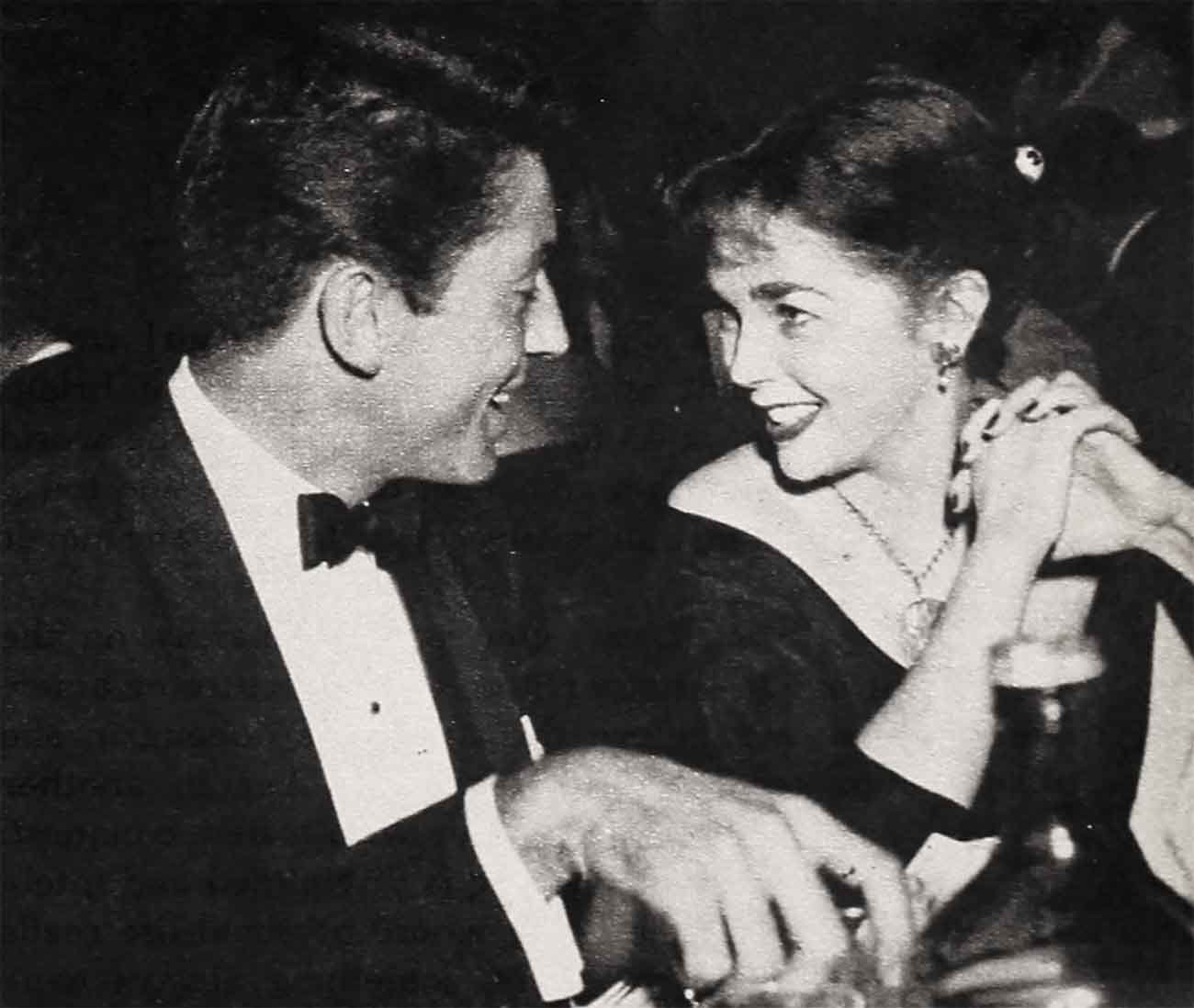
“To make a career, one has to be selfish to a certain point. You have to consider it before anything else when you are trying to establish it. My father says, ‘There should be a touch of a squaw in every woman. A wife should be able to pitch a tent wherever her man belongs.’ But I did not feel that way. Not then. I eagerly signed a contract with MGM. Later I made ‘The Moon Is Blue’ and a succession of pictures here and in Europe.
“The first time I fell in love,” Dawn says, “was in 1951, while I was making ‘The House Of 13’ in London. The leading man in my life was Anthony Steel. His films, although they are not exported to this country, make him a tremendous favorite in England. It was the first time I was really smitten. We had a wonderful Summer together.
“I got hurt by Tony. Instinctively, I knew it would fade. He’d been married. Man, in a way, is a moral coward. There comes a time when he’s afraid of how a romance will end. He knows if it continues he will want to marry, so he starts disappearing. Rather than tell the truth, most men are afraid women will not accept it.
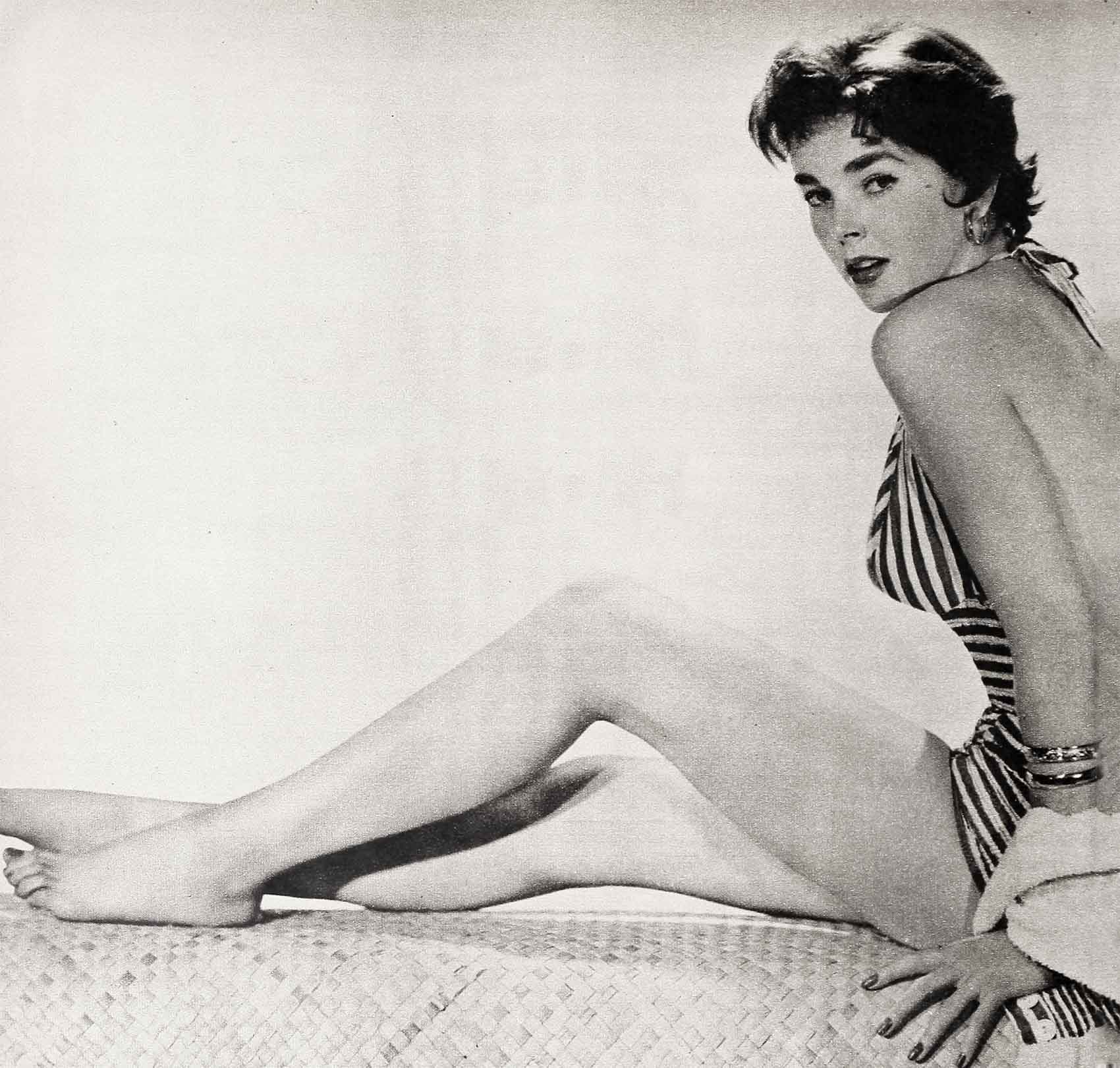
“Then I met Claude Dauphin, great star of the Paris theatre and arts. He was one of the most wonderful and understanding men I have ever known.
“I was going through the period of trying to forget Tony. Meeting Claude in Paris was right for me, although at the time I didn’t realize it. I did not even accept his invitation to see his play. Three months later we met at a party in Hollywood and he was very charming. During the next four months I got to know him and learn his wonderful qualities. Then our work separated us and we corresponded for a year. I got to know him still better through his letters. We had a very honest relationship—for we both knew that it was not in the books for us to think of marriage. Just as he returned to America, I was on my way to Madrid. Our wires passed, just like our planes did over the Atlantic. There were 6,000 miles between us. Our future was left open to circumstances. We are still friends.”
Of her romance with Farley Granger, Dawn says, “It was a case of two people who meet at the wrong time. Farley was establishing his career. His freedom of movement was very important to him. It is no use for two people like us to get themselves involved by being other than casual friends. So we parted on a friendly basis.
“Tab Hunter and I worked together on a film. Two actors so involved share something which no one can evaluate. You create two characters in a story. If your own emotional life is confused, you associate the character you are portraying with yourself, and in so doing can fall in love with the story’s hero and the man portraying him.”
Bob Stack, Peter Lawford, Richard Anderson, Nicky Hilton, and all of the rest were nice men Dawn enjoyed dating on occasion. But Vittorio, he’s different!
“I was making a film, ‘Mizar,’ in Rome,” Dawn said. “Everything was new and strange to me. One day a very charming man in bluejeans arrived on the set to visit. He was en route to Capri. For a lark he played an Arab extra in the picture. He was Vittorio Massimo. We became acquainted, and I discovered he had a wonderful sense of humor.
“One day he invited me to join a party of people at his house at Circeo on the coast. There were many people there that Sunday afternoon. I remember Anna Magnani was telling one of her famous stories—entertaining everyone. But, from the heat and the work on the picture, I had a slight headache. I went inside to be quiet. Vittorio came in and hovered over me solicitously. Then he said, softly, ‘I want you to marry me. Will you?’
“I was so surprised, I couldn’t reply.
“I promised him I would only be in America for a short time to make a picture and then I would return to Europe with my answer. But now I have an offer to make another picture here. Again I must decide which comes first—marriage or a career. I wonder what I will do.”
THE END
—BY MAY MANN
It is a quote. SCREENLAND MAGAZINE APRIL 1954




